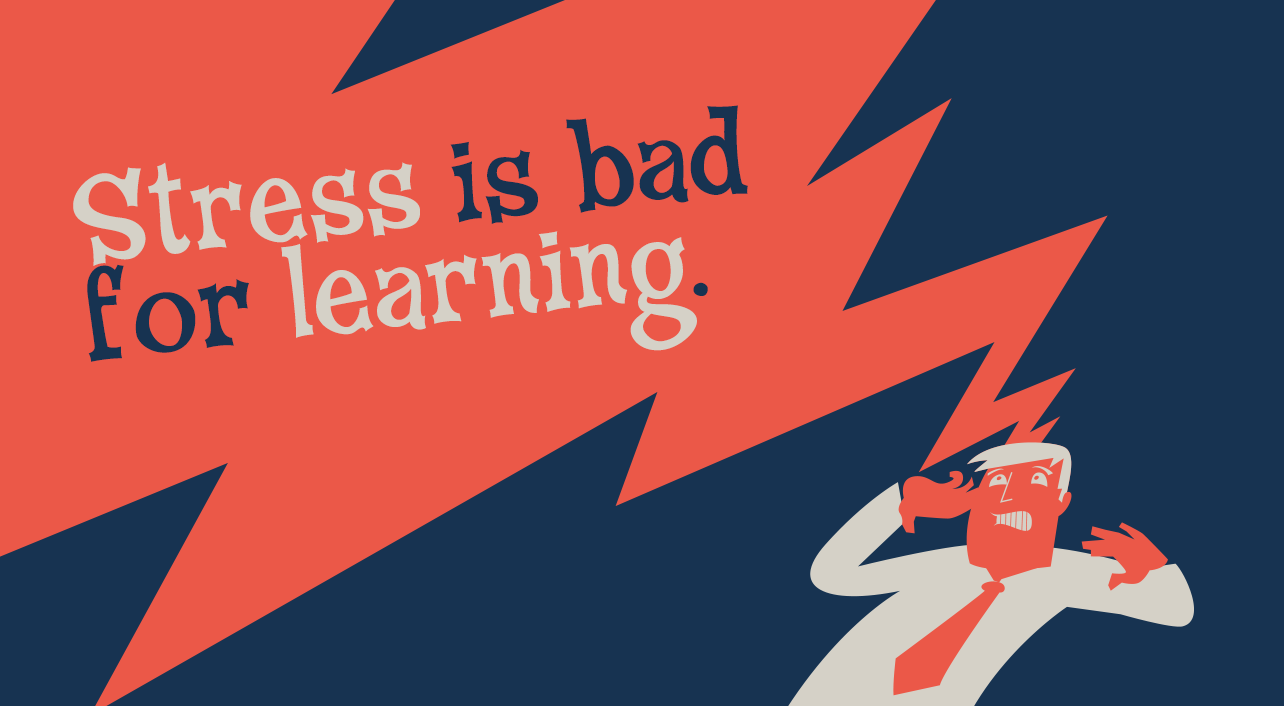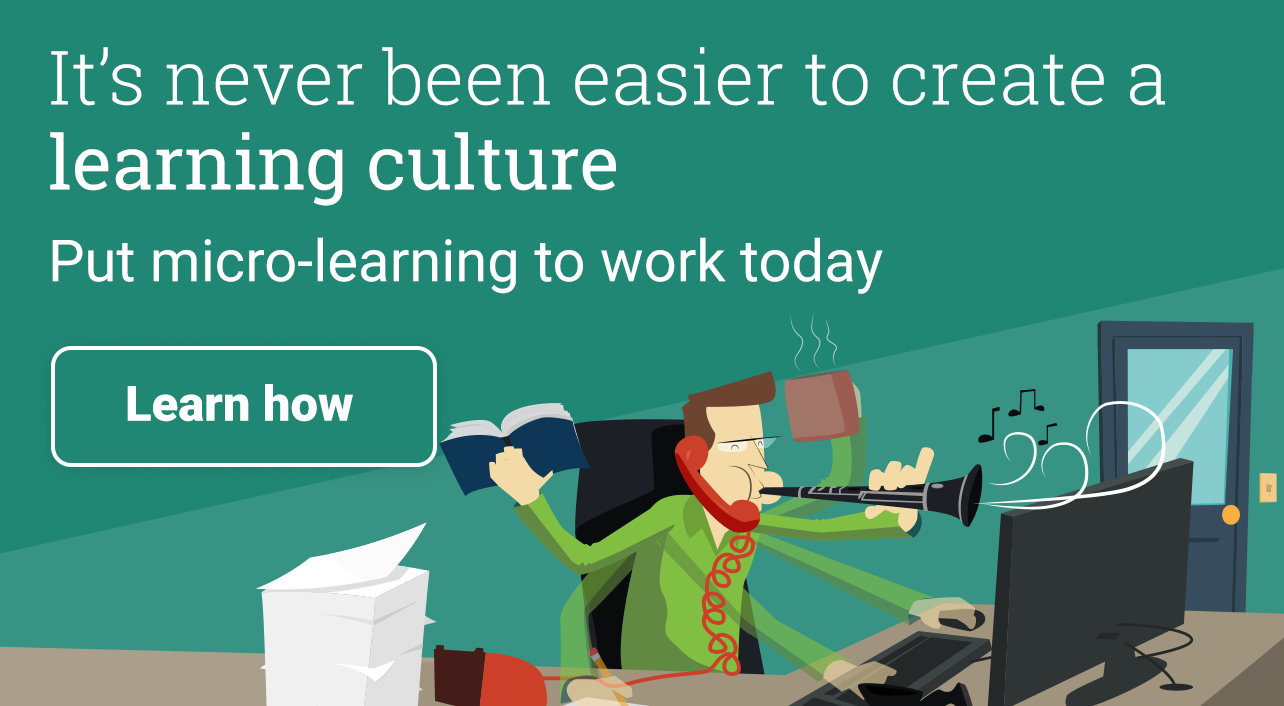- rli
- Blog post
Research: High stakes can set back learning
Think about a time when your employees might be asked to perform under pressure. Maybe they’re trying to close a big sale. Or handle a sensitive personnel issue. Or deal with an equipment failure. In stressful situations like these, when emotions are running high, training can make the difference.
So there’s a certain logic to ratcheting up the pressure during certain workplace learning experiences, right? If learners are learning a skill that they’ll likely use under stress, they should probably practice it under stress.
Well, a recent study suggests that pressure may not be the best way to teach high-stakes skills. But the research also sheds some light on what you should do.
The research
Researchers from the University of Houston wanted to see how stress plays a role in learning, so they chose learners who are no strangers to pressure — medical students. More specifically, medical students who were learning to be surgeons.
The researchers also brought in a second group — students who had no intention of becoming surgeons but who were genuinely interested in learning more about surgery.
The researchers observed both groups as they learned a complicated surgical procedure. After training sessions that lasted only a few hours, both groups were asked to practice what they’d learned using a surgical simulator. To track the stress levels of the participants, the researchers used thermal imaging to measure their sweat responses.
The surgical students exhibited high levels of stress during the simulation exercise. The elevated stress, according to the researchers, then led to them rush and make mistakes. In fact, the researchers observed no skill improvement whatsoever among the surgical students after the training experience.
The second group did surprisingly well. In just a few hours, people in the group did better at performing the simulated surgery. And despite their relative lack of training, they experienced lower levels of stress during the simulation.
So how did the inexperienced group outperform the surgeons-in-training? The researchers said it all came down to stress. Because the second group did not have the pressure of medical school and grades hanging over their heads, they were able to absorb and practice the skill simply as an interesting challenge.
As the head researcher said, “We removed stressful environmental factors, leaving only the inherent challenge of the surgical tasks…. If you acquire a [skill] when you are not super stressed, you will acquire it better and faster, because `fight or flight’ responses are not there to mess things up.”
How stress affects memory
This research builds on other studies that have suggested that stress can short-circuit the learning process. One such study, conducted at UC Irvine, found a neurological reason for why stress can interfere with learning.
Learning and the formation of new memories happen in brain synapses, which are like intersections in the brain where brain cells communicate. The UC researchers found that under stress, the brain releases hormones that effectively disrupt these synapses, thereby derailing the learning process.
Regardless of the neurological evidence, anyone who is familiar with the “fight or flight” response that occurs under stress knows that it’s not conducive to learning. And without the confidence that comes with mastery of a skill, the pressure could get to learners in the real world when the stakes are truly high.
Recommendations
Here are some evidence-based recommendations for how to apply this research in your workplace learning program.
Disconnect learning from performance goals.
In the study, the crucial difference between the two groups was pressure. People in the second group, with no previous experience, ended up quickly learning a surgical procedure because they did so with genuine interest and without stress. So try to replicate that low-stress condition in your workplace training program. Separate the learning process from the pressure of performance goals. Learning should be an opportunity for employees to acquire new skills free from stress or fear of failure. Frame workplace learning as an opportunity to grow and explore, not for people to get evaluated in their job.
Turn down the pressure.
If learners are learning something particularly important to their future success, try to keep the stress level low. Help learners feel comfortable about asking questions and practicing new skills without fear of failure or judgment. Let learners know that they won’t be asked to apply new skills in the real world until they’re comfortable with them.
Keep at it.
The ultimate goal is to equip learners with the skills they need to shine when the pressure is on. When learners are comfortable and confident in their abilities, that’s when training kicks in rather than a “fight or flight” response. So structure your learning experiences like the old joke about how to get to Carnegie Hall: Practice, practice, practice.
Sources
Pavlidis, I., et al. (2019). Absence of stressful conditions accelerates dexterous skill acquisition in surgery. Scientific Reports, 9(1). doi: 10.1038/s41598-019-38727-z
Chen, Y., et al. (2008). Rapid loss of dendritic spines after stress involves derangement of spine dynamics by corticotropin-releasing hormone. Journal of Neuroscience, 28(11), 2903-2911.

Get a demo of all our training features
Connect with an expert for a one-on-one demonstration of how BTS Total Access can help develop your team.




